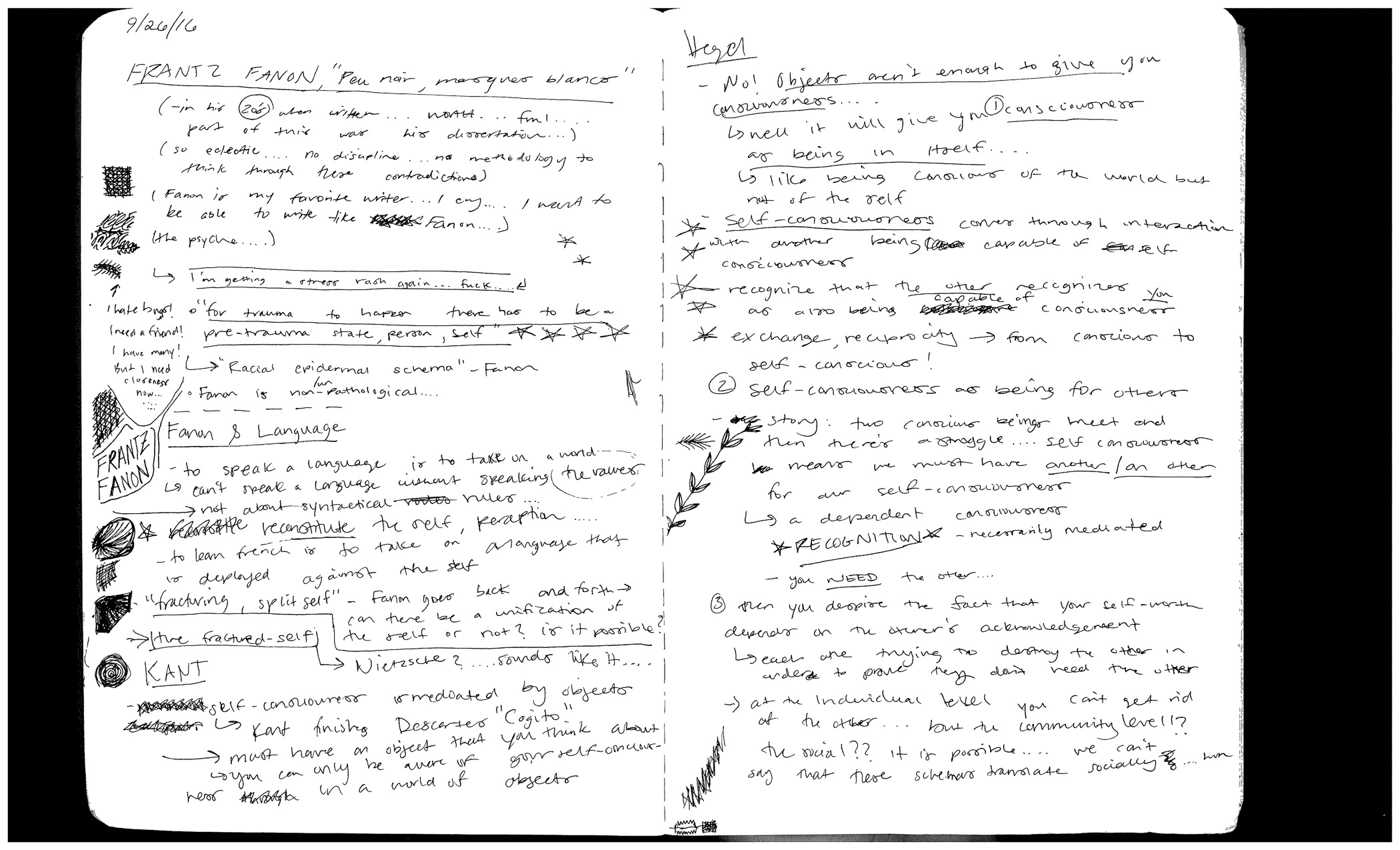tuesday reflection: thoughts on class
By hannahNovember 2, 2016 - 00:02

re: the book of salt:
i finished it this morning
...i liked it.
TBoS comes "full circle" in the way it's told -- not focusing so much on a distinct storyline or conflict as much as on the gradual revealing of a character. i ended up with a lot of questions about the ending of the book, because so much of it was so vague. and yet, i'm thinking back to the chinese folk stories i read at my grandma's house when i was really little, and remembering that i always had a similar feeling after those... the feeling that things are left unfinished and that the rest of the story is up to you to fill in.










